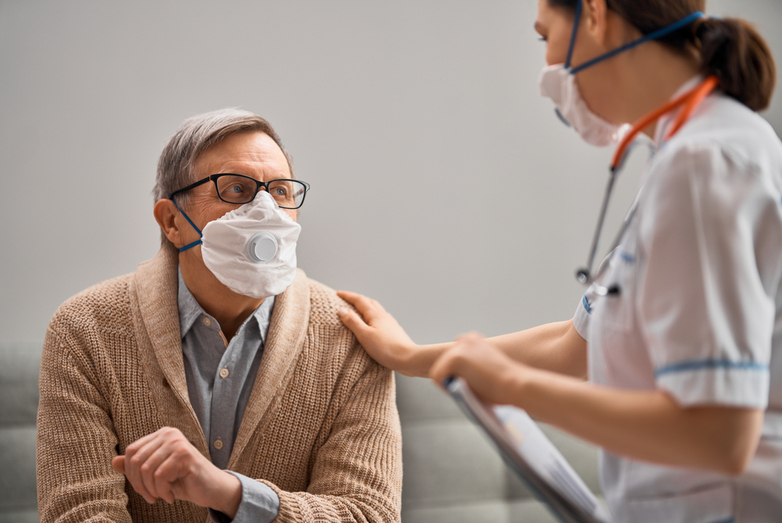In early March, the government warned family members to stay out of nursing homes because of the high risk of passing COVID-19 to elderly patients. Staying away because you are sick or exhibiting symptoms is simply not enough. After all, some people are asymptomatic and have no way of knowing they are infected while still passing the virus along. In addition, COVID-19 is transmittable before showing any signs or symptoms.
Coronavirus hits elderly populations the hardest, which is why it is essential we protect our nursing homes and assisted living facilities during the COVID-19 pandemic. Most nursing homes have closed their doors to visitors as a result, while this serves to keep the vulnerable patients inside safer, it is difficult for family members who are stuck on the outside – wanting to visit their elderly parents, grandparents, or spouse but unable to. Not to mention, family members are undoubtedly worried about the level of safety and care their loved ones are receiving when they are unable to check in on them.
According to data released on March 23 by the Centers for Medicare & Medicaid Services (CMS), there are over 150 skilled nursing facilities across the US with at least one case of COVID-19 within its walls.
Before President Donald Trump issued a national emergency and the federal government barred outsiders from visiting nursing homes on March 13, many were already closing their doors or at least urging loved ones to stay away.
The Department of Veterans Affairs developed an isolation plan just days earlier, on March 10, which kept outsiders and new patients from entering all of its 134 nursing homes, as well as 24 spinal cord injury centers.
“We know that there is a risk that people who appear healthy will enter nursing homes and assisted living communities and still infect residents,” said Mark Parkinson, president and chief executive at the American Health Care Association and National Center for Assisted Living.
This isn’t easy for family members to take in. While they, of course, want to keep their loved ones safe and healthy, they also want to see them. Those living in assisted living and nursing homes may have pressing health issues and an untold amount of time left in the physical world, making it all the harder to stay away.
Due to how quickly COVID-19 spreads, if one patient is infected in a nursing home, it could quickly spread to other residents. We have already seen mass outbreaks and casualties play out as a result of this. Still, family members worry about the toll social isolation, depression, and loneliness will play on their loved ones when they are unable to visit them.
The risks of COVID-19 are just too high for elderly people.
“In our facilities the average age is 84, and everyone has underlying medical conditions. So when you combine those factors together, we are dealing with perhaps the greatest challenge that we ever have had,” Parkinson told CNN.
In addition to keeping outsiders from visiting, the government has warned all nursing homes to halt group activities and communal dining. Residents and staff must be routinely screened for fever and respiratory issues. The same recommendations are in place for assisted living facilities. Although, each state is responsible for making the recommendations for continuing care communities, independent living and assisted living facilities.
While everyone wants to visit their loved ones, the best thing you can do right now is stay away Make phone calls, set up a virtual Zoom or Skype meeting, maybe even pay a visit through the window (if possible). Send a letter or care package to let your loved ones know that you’re thinking about them. It’s not easy, but we are in this together.

